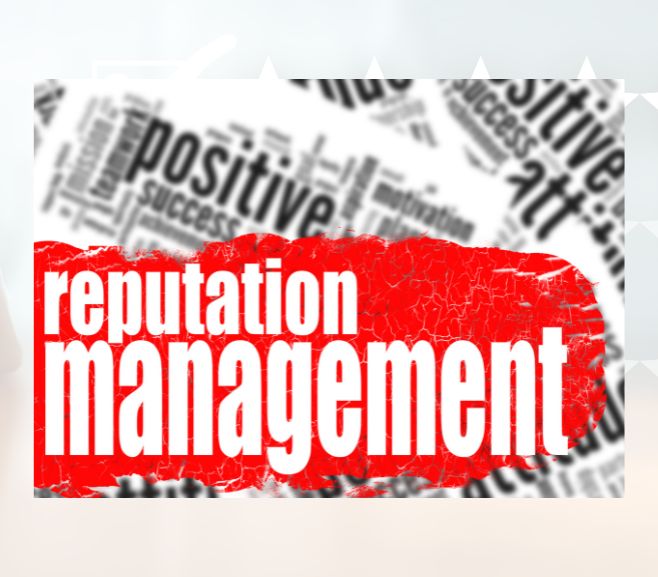Personal reputation management services are essential for any individual or organization looking to maintain a positive public image. Here are some dos and don’ts of reputation that can help you succeed:
Monitor your Online Reputation Regularly
Keep an eye on what people are saying about you or your brand online, and respond appropriately. Use social media monitoring tools to stay updated on online conversations.
Monitoring your reputation management regularly is important to maintain a positive image for yourself or your brand. It involves keeping a close eye on what people are saying about you or your brand on the internet, including social media review sites, news articles, and other online platforms. By monitoring your reputation regularly, you can quickly respond to any negative comments or reviews and take appropriate action to address any issues that may arise. You can use various tools and services such as Google Alerts, Hoot suite, or social media monitoring software to keep track of your reputation.
Respond Promptly and Professionally
Address any negative comments or reviews in a timely and professional manner. Responding quickly and empathetically can help diffuse any negative sentiments.
Responding promptly and professionally to any feedback, whether positive or negative, is crucial in reputation management. If you receive negative comments or reviews, it’s important to address them promptly and professionally. Avoid getting defensive or engaging in arguments with the person providing the feedback, as this can escalate the situation and harm your reputation. Instead, respond politely and empathetically, and offer a solution or explanation if possible. Similarly, if you receive positive feedback respond with gratitude and appreciation to show that you value your customers or audience. By responding promptly and professionally to all feedback you can demonstrate your commitment to providing excellent customer service and enhance your reputation management.
Be Transparent Reputation Management Services
Be honest and transparent in your communications, and avoid misleading or false statements.
Being transparent is a key aspect of reputation management. It means being open and honest in your communication with your audience, customers, or stakeholders. Transparency builds trust and credibility, which are important for maintaining a positive reputation. In practice, being transparent involves providing accurate and complete information admitting mistakes, and being open about your intentions and actions. For example, if you’re facing a crisis or negative publicity, it’s important to be transparent about what happened, what you’re doing to address the situation and how you plan to prevent it from happening again in the future. By being transparent you can demonstrate your integrity and commitment to doing the right thing which can enhance your reputation and build a stronger relationship with your audience.
Promote Positive News:
Share positive news or achievements of your brand or organization through social media, press releases, or other media channels to enhance your reputation.
Promoting positive news or achievements is an effective way to enhance your reputation. By sharing the good news about your brand, organization, or yourself, you can highlight your strengths, achievements, and positive impact, and create a positive image in the minds of your audience. You can promote positive news through various channels, such as social media, press releases, newsletters, or blog posts. For example, if you launch a new product or service, win an award, or receive positive media reputation management coverage, you can share the news on your social media accounts, send out a press release, or write a blog post about it. By sharing positive news, you can build a stronger connection with your audience and demonstrate your credibility and value.
Build Relationships:
Develop relationships with influencers, customers, and other stakeholders to create a strong and loyal following.
Building relationships is an important aspect of reputation management. By developing strong connections with your audience, customers, stakeholders, or influencers, you can build a loyal following and enhance your reputation. Building relationships involves listening to your audience, engaging with them, and creating a sense of community around your brand or organization. You can build relationships through various activities, such as responding to comments and feedback, hosting events or webinars, collaborating with other brands or influencers, or providing value-added content. By building relationships, you can create a positive image of your brand and increase your credibility and trustworthiness in the eyes of your audience.
Ignore Negative Feedback:
Ignoring negative comments or reviews can worsen your reputation. Instead, respond promptly and address the concerns raised.
Get Into Arguments:
Avoid getting into arguments or being defensive when responding to negative comments. This can make the situation worse. Getting into arguments is something to avoid in reputation management. Engaging in arguments or conflicts with your audience, customers, or stakeholders can harm your reputation and damage your relationship with them. Even if you believe that you’re right, it’s important to respond calmly and professionally to negative comments or feedback and try to resolve the issue in a constructive way. Arguing or getting defensive can make the situation worse, and may result in negative publicity or loss of customers. Instead, it’s important to focus on providing excellent customer service, addressing the concerns raised, and finding a solution that works for both parties. By avoiding arguments and conflicts, you can demonstrate your professionalism and commitment to maintaining a positive reputation.
Post Inappropriate Content:
Avoid posting any content that could be seen as offensive or inappropriate, as this could harm your reputation.
Posting inappropriate content is a major risk to reputation management. Inappropriate content can include offensive language, discriminatory remarks, controversial opinions, or anything that is deemed inappropriate or offensive by your audience or stakeholders. Posting such content can damage your reputation, harm your relationship with your audience, and even lead to legal or regulatory consequences. It’s important to be mindful of your audience and the potential impact of your content before posting anything online. It’s also important to follow ethical and legal guidelines, such as avoiding false or misleading claims, respecting intellectual property rights, and complying with privacy laws. By posting appropriate and high-quality content, you can enhance your reputation and build a positive image for yourself or your brand.
Mislead Customers:
Never mislead customers or stakeholders by making false claims or providing misleading information. Misleading customers is a major violation of reputation management principles. Providing false or misleading information to your audience, customers, or stakeholders can harm your reputation and lead to legal or regulatory consequences. It’s important to be truthful and transparent in your communication and marketing materials and avoid making false or exaggerated claims about your products or services. For example, you should avoid making promises that you can’t keep, using misleading or fake testimonials, or hiding important information that could impact the customer’s decision to purchase your product or service. By being honest and transparent, you can build trust with your audience and enhance your reputation.
Reputation Management Services Buy Fake Reviews or Followers:
Buying fake reviews or followers may seem like an easy way to boost your reputation, but it can backfire and harm your credibility in the long run.
By following these dos and don’ts of reputation, you can maintain a positive public image and build a strong reputation for your brand or organization.




